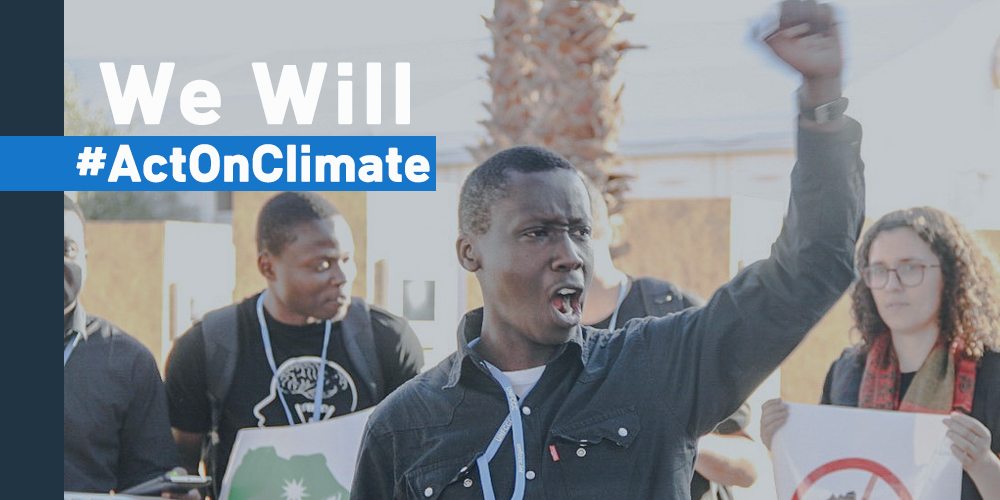In the lead-up to today’s announcement by the Trump administration that they would be pulling the United States out of the Paris agreement to combat climate change, many news stories stated that this puts the U.S. in rare company: only two other countries, Nicaragua and Syria, are not party to the Paris agreement.
Somewhat lost in this storyline, however, is the fact that these countries opted out of the agreement for very different reasons. The Trump administration is withdrawing because key officials are outright climate deniers, mouthpieces of fossil fuel and other industries directly threatened by climate action, extreme nationalists intent on dismantling the structures of international cooperation, or all of the above. In other words, Trump’s withdrawal camp sees the Paris agreement as a threat to U.S. sovereignty and U.S. corporate interests.
On the other hand, Syria was in the midst of civil war and heavily sanctioned during the thick of the negotiations leading up to Paris. More interestingly, Nicaragua refused to join the agreement not because they felt it was a threat to their sovereignty but because they felt that it was too weak and too unfair: a neo-colonial agreement that not only failed to ensure the action needed to safeguard Nicaragua and other vulnerable countries from irreversible climate-induced impacts, but actually shifted the responsibility of climate action off of the rich industrialized countries primarily responsible for causing climate change.
In a fiery statement delivered immediately after the agreement was gaveled through in Paris in December 2015, and a follow-up statement delivered at the Paris agreement signing ceremony in April 2016, Nicaragua’s lead climate negotiator Paul Oquist Kelley cited numerous studies showing that the Paris agreement would utterly fail to achieve the agreement’s goal of limiting global temperature rise to 2 degrees Celsius, making all possible efforts to a goal of 1.5 degrees.
Instead, countries’ collective commitments under Paris would lead to a 3-degree world at best – a disastrous outcome especially for poorer countries in vulnerable regions such as sub-Saharan Africa.
Oquist cited the tremendously dangerous impacts of such a dramatic failure, particularly on developing countries including Nicaragua. Nicaragua would not join the agreement, he said, because of its failure to push the world towards the urgent action needed to forestall the climate crisis. His critique of the agreement focused on the lack of legally binding emissions reductions from rich industrialized countries, the failure to provide finance to support climate action in poorer countries, and a particular legal clause that prevents developing countries suffering permanent climate-related “loss and damage” from seeking compensation from countries responsible for causing the climate crisis.
Oquist’s interventions in Paris and New York were generally seen by negotiators and many observers as a bit of a party foul, an irritating naysayer in the midst of triumphant officials celebrating a milestone achievement of international diplomacy. Oquist was unable to persuade other countries to support Nicaragua’s protest and make it something more than symbolic. Nevertheless, a troubling fact remains: everything he said was correct. As we and many others have repeatedly pointed out, it is sadly true that the Paris agreement is lacking in both fairness (ensuring rich countries must do more than poor ones) and ambition (ensuring that collective commitments are strong enough to limit temperature rise to no more than 2, or ideally 1.5, degrees).
In other words, Nicaragua chose not to join the Paris agreement because they believe the climate science that unequivocally tells us that a much stronger global framework is needed to address the climate crisis, and because they saw the agreement as fundamentally unjust because it does not explicitly require rich countries to do more than poor ones. These are absolutely legitimate concerns that echo what many in civil society have been saying for years – as exemplified by our People’s Climate Test leading up to the Paris negotiations and our Equity Review that evaluated the fairness (or lack thereof) in the Paris agreement.
On the other hand, the Trump administration is choosing to withdraw from the Paris agreement for reasons that are wholly disconnected from the real world of rising temperatures, worsening impacts, global justice, and an onrushing renewable energy revolution. The Trump administration is, as always, acting as a proxy for wealthy elites and ideological extremists. Putting them in the same category as Syria and Nicaragua does both of those countries an injustice.
Nicaragua’s stance on the Paris agreement, while not always constructive, must be applauded on the merits, and their critique must be taken seriously. Trump’s must be vilified and resisted at every turn. The rest of the world needs to continue, and improve upon, their existing commitments under the Paris agreement, while here in the U.S. we need to strengthen our movement and build power to force our political leaders to face reality and take climate action seriously, as soon as humanly possible.

